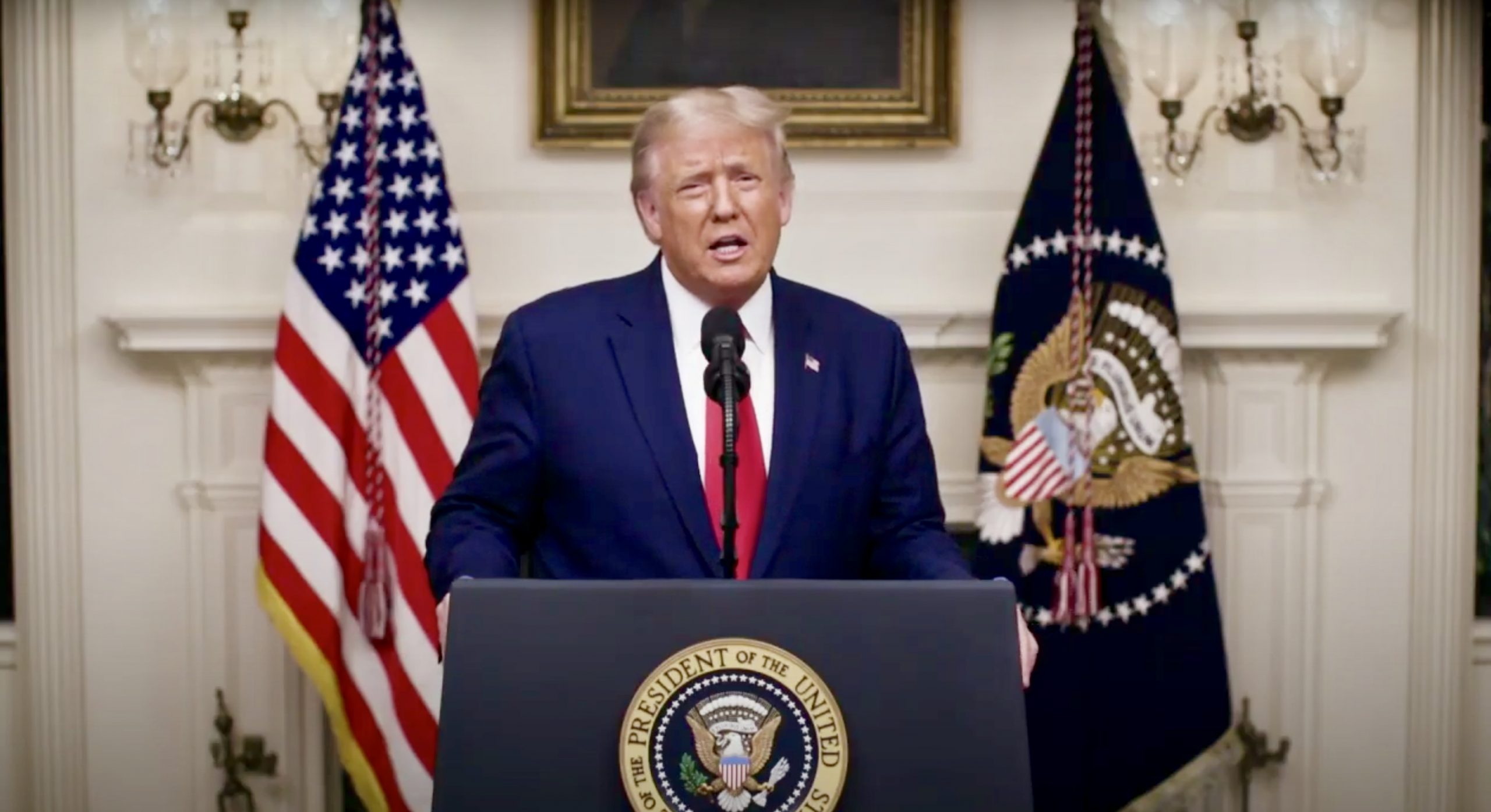Trump and Barr Address National Catholic Prayer Breakfast

The expectation that President Trump will nominate Amy Coney Barrett, a devout Catholic, for a seat on the Supreme Court later this week has revived a good bit of old-fashioned anti-Catholicism, as left-wing feminists warn that this mother of seven will usher us into The Handmaid’s Tale.
Against this backdrop, the president himself delivered an address at Wednesday’s National Catholic Prayer Breakfast—a non-partisan event held annually since 2004—and Attorney General William Barr delivered extensive remarks on accepting the breakfast’s Christofideles Laici Award.
The most notable detail of President Trump’s speech was his announcement of a Born-Alive Executive Order, which will “ensure that all precious babies born alive, no matter their circumstances, will receive the medical care that they deserve.” The president described this as “our sacrosanct moral duty,” and also announced his intention to increase federal funding for neonatal research.
It was a clear attempt to remind Catholic voters of what has long been Trump’s primary appeal to people of faith: a consistent pro-life rhetoric and record since coming into office. But it was also a politically safe move. A few proposals to enable what Sen. Ben Sasse (R-NE) calls “fourth-trimester abortions” (read: infanticide) have cropped up over the past few years—headlines ran rampant after Virginia Governor Ralph Northam endorsed passive infanticide on live radio in 2019, while a relevant bill was being considered in his state’s legislature. Congressional Democrats, led by Speaker Pelosi, have consistently blocked Republican efforts to implement strengthened protections for born-alive survivors of abortion.
But it’s far less of a hot-button issue than it would seem. Polling shows 77% of voters are already on board on the born-alive issue, and there’s some doubt over whether any new action is even needed. Legal protections for born-alive survivors do already exist, and the kind of passive infanticide that Northam brought into the national spotlight last year is hardly the crux of the abortion debate. The intended executive order is, at the very least, a sign that the president is on the right page on life issues, and it may provide a bit of a counterforce to Pelosi’s legislative blockage on the born-alive question. Nonetheless, many who tuned in on Wednesday in hopes of some stronger sign of solidarity with Catholic voters are likely to have been disappointed—though the more substantial hopes of pro-lifers are now likely hanging on Coney Barrett.
♦♦♦
A far more pointed witness was provided by the president’s attorney general, Bill Barr. Following closely in the vein of his much-discussed speech at Notre Dame Law School in October, Barr attributed much of our current social turmoil to a crisis of religion. His view of the present is fairly grim, but hardly outlandish: “Traditional morality has eroded, and secularists have often succeeded not only in eliminating religion from schools and the public square, but in replacing it with a new orthodoxy that is actively hostile to religion.” This can be blamed for everything from urban violence to the decline of the family to the rise of an over-powerful government.
Citing such diverse historical figures as John Adams and Justice William O. Douglas (an FDR appointee), Barr made a compelling case for America as a historically and inherently religious nation, and reminded the breakfast’s virtual attendees that American freedom’s rely first on American virtues. The message was clear: a secular people—and if we have not become one, we are well on our way—cannot long sustain the American experiment. (Barr’s call to restore public religion was echoed by Los Angeles Auxiliary Bishop Robert Barron—hardly a reactionary—in a historically oriented speech sandwiched between Barr’s and Trump’s.)
Barr’s critics are sure to denounce these remarks as threatening to some conception of “the separation of Church and state”—just as they did immediately following the Notre Dame speech, and just as they have already begun to do in attacks on Amy Coney Barrett. But this too is a consequence of our national crisis of faith, as Barr sees it: our fear of religion as anything more than a private devotion has caused us to redefine “separation of Church and state” as a wholesale banishment of faith from civic life.
In the attorney general’s words: “Militant secularists have long seized on that slogan as a facile justification for attempting to drive religion from the public square, and to exclude religious people from bringing religious perspectives to bear on conversations about the common good.”
Timely.